Tried to call for information and they just kept redirecting me to one person after another. Not one person was willing to listen to me and provide the information I required. It was impossible for me to even get into treatment. They are very incompetent and disorganized.
About Ascension Columbia St. Mary’s Hospital Milwaukee
Ascension Columbia St. Mary’s Hospital Milwaukee Campus is located in Milwaukee, Wisconsin. The hospital has an ER and critical care services and offers advanced specialty services. Additionally, they offer treatment for mental health and substance use disorders (SUD).
Some additional mental health services are offered at the Ascension Columbia St. Mary’s Gateway in West Allis, only a few miles away. Ascension Wisconsin takes most insurance plans though you will need to pay any copays at the time of the visit.
SUD and Mental Health Care on Lake Michigan’s Western Shore
Milwaukee is a beautiful city located on Lake Michigan’s Western Shore. The hospital is near the shore and less than a mile from the scenic North Point Lighthouse and park area. Because the hospital is open 24/7 and offers emergency care, individuals experiencing a behavioral health or substance use crisis can obtain emergency care.
Additionally, the hospital has comprehensive SUD treatment services that include intensive inpatient addiction recovery programs. Clients also have the option of partial day treatment programs. Because substance misuse often goes hand in hand with mental health disorders, they have behavioral health counseling services.
Gambling, Internet, Gaming, Sex, and Other Addiction Treatment in Wisconsin
Not all addictions involve alcohol and drugs. One of the nice things about the addictions program here is the treatment for a full array of addictions. Whether you’re addicted to pornography, sex, gambling, shopping, or the internet, the treatment team can help.
Getting Treatment for Your Adolescent
Unfortunately, addictions and mental health challenges don’t afflict only adults. If your adolescent is having trouble with substance use, gaming, the internet, or other addictions, there are treatment programs for those under 18.
The center has physicians who specialize in adolescent medicine, including development, growth, and the overall health of teens. Your teen can get integrated care for both addiction and any physical or emotional problems that may be contributing to your teen’s lack of well being and substance use. The hospital offers comprehensive critical care, substance use, and mental health services for all walks of life.
Latest Reviews
Rehab Score
Gallery
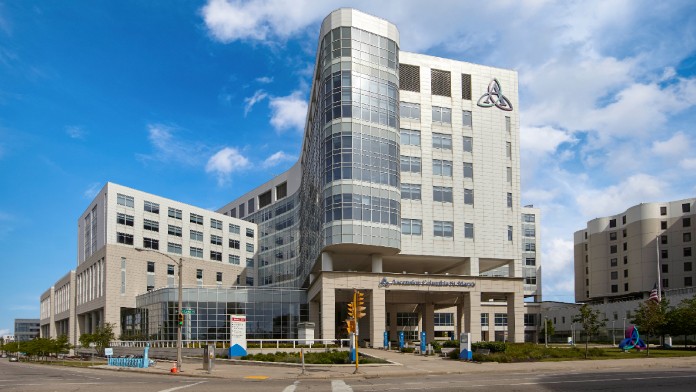
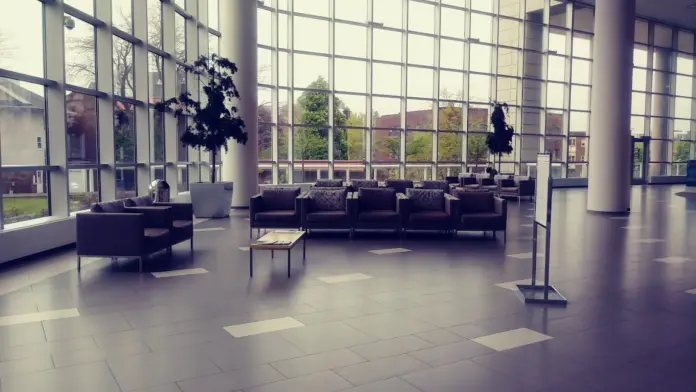
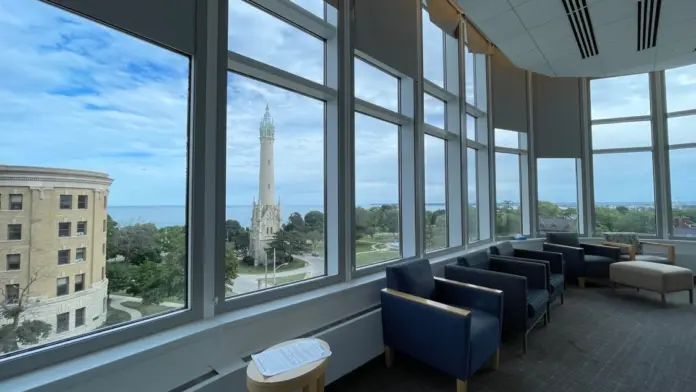
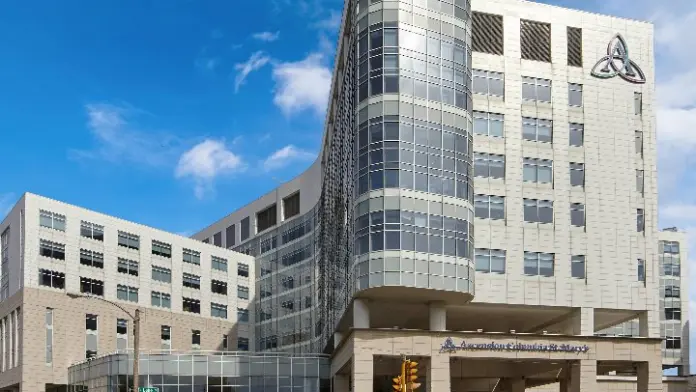
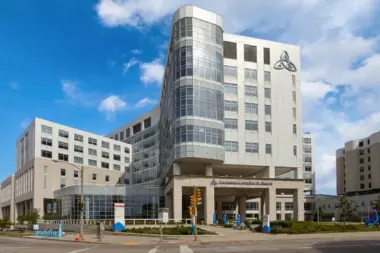


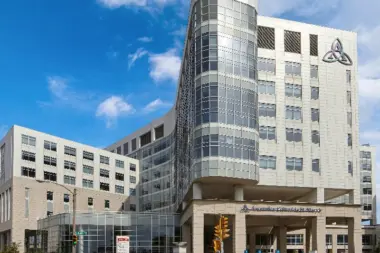
Other Forms of Payment
Private insurance refers to any kind of healthcare coverage that isn't from the state or federal government. This includes individual and family plans offered by an employer or purchased from the Insurance Marketplace. Every plan will have different requirements and out of pocket costs so be sure to get the full details before you start treatment.
Self-pay involves paying for treatment out of your own pocket. You can use savings or credit, get a personal loan, or receive help from family and friends to fund your treatment. If you don't have insurance or your insurance plan doesn't cover a specific program, self-pay can help ensure you still get the care you need.
Medicare is a federal program that provides health insurance for those 65 and older. It also serves people under 65 with chronic and disabling health challenges. To use Medicare for addiction treatment you need to find a program that accepts Medicare and is in network with your plan. Out of pocket costs and preauthorization requirements vary, so always check with your provider.
Military members, veterans, and eligible dependents have access to specific insurance programs that help them get the care they need. TRICARE and VA insurance can help you access low cost or no cost addiction and mental health treatment. Programs that accept military insurance often have targeted treatment focused on the unique challenges military members, veterans, and their families face.
Medicaid is a state based program that helps lower-income individuals and families pay for healthcare. Medicaid covers addiction treatment so those enrolled can use their coverage to pay for rehab. When a program accepts Medicaid the client often pays very little or nothing out of their own pocket.
Addiction Treatments
Levels of Care
Outpatient Programs (OP) are for those seeking mental rehab or drug rehab, but who also stay at home every night. The main difference between outpatient treatment (OP) and intensive outpatient treatment (IOP) lies in the amount of hours the patient spends at the facility. Most of the time an outpatient program is designed for someone who has completed an inpatient stay and is looking to continue their growth in recovery. Outpatient is not meant to be the starting point, it is commonly referred to as aftercare.
Residential treatment programs are those that offer housing and meals in addition to substance abuse treatment. Rehab facilities that offer residential treatment allow patients to focus solely on recovery, in an environment totally separate from their lives. Some rehab centers specialize in short-term residential treatment (a few days to a week or two), while others solely provide treatment on a long-term basis (several weeks to months). Some offer both, and tailor treatment to the patient's individual requirements.
Drug and alcohol addiction often takes a heavy toll on one's body. Over time, a physical dependence can develop, meaning the body physiologically needs the substance to function. Detox is the process of removing drugs and/or alcohol from the body, a process that can be lethal if mismanaged. Medical detox is done by licensed medical professionals who monitor vital signs and keep you safe, healthy, and as comfortable as possible as you go through detox and withdrawal.
Intensive Outpatient Programs (IOP) are for those who want or need a very structured treatment program but who also wish to live at home and continue with certain responsibilities (such as work or school). IOP substance abuse treatment programs vary in duration and intensity, and certain outpatient rehab centers will offer individualized treatment programs.
Treatments
The goal of treatment for alcoholism is abstinence. Those with poor social support, poor motivation, or psychiatric disorders tend to relapse within a few years of treatment. For these people, success is measured by longer periods of abstinence, reduced use of alcohol, better health, and improved social functioning. Recovery and Maintenance are usually based on 12 step programs and AA meetings.
The goal of drug rehab in Wisconsin is to address drug addiction as a complex issue that involves physical, mental, and relational aspects. During rehab, treatment focuses on each of these areas and gives you the tools you need to achieve and maintain sobriety.
Many of those suffering from addiction also suffer from mental or emotional illnesses like schizophrenia, bipolar disorder, depression, or anxiety disorders. Rehab and other substance abuse facilities treating those with a dual diagnosis or co-occurring disorder administer psychiatric treatment to address the person's mental health issue in addition to drug and alcohol rehabilitation.
A combined mental health and substance abuse rehab has the staff and resources available to handle individuals with both mental health and substance abuse issues. It can be challenging to determine where a specific symptom stems from (a mental health issue or an issue related to substance abuse), so mental health and substance abuse professionals are helpful in detangling symptoms and keeping treatment on track.
Opioid rehabs specialize in supporting those recovering from opioid addiction. They treat those suffering from addiction to illegal opioids like heroin, as well as prescription drugs like oxycodone. These centers typically combine both physical as well as mental and emotional support to help stop addiction. Physical support often includes medical detox and subsequent medical support (including medication), and mental support includes in-depth therapy to address the underlying causes of addiction.
Programs
Adult rehab programs include therapies tailored to each client's specific needs, goals, and recovery progress. They are tailored to the specific challenges adult clients may face, including family and work pressures and commitments. From inpatient and residential treatment to various levels of outpatient services, there are many options available. Some facilities also help adults work through co-occurring conditions, like anxiety, that can accompany addiction.
Young adulthood can be an exciting, yet difficult, time of transition. Individuals in their late teens to mid-20s face unique stressors related to school, jobs, families, and social circles, which can lead to a rise in substance use. Rehab centers with dedicated young adult programs will include activities and amenities that cater to this age group, with an emphasis on specialized counseling, peer socialization, and ongoing aftercare.
Clinical Services
As a form of substance use treatment, cognitive behavioral therapy in Wisconsin offers several advantages. The duration of this talk therapy is typically 20 sessions or less, so it can be more affordable, with quicker results. It's also offered in multiple formats, so it can be tailored to meet individual needs.
The word dialectical describes the foundation of dialectical behavior therapy (DBT). Meaning "opposite," the word refers to the treatment's focus on both acceptance and change. While learning to accept where you are and the emotions you're feeling, you also learn to grow and change to establish healthier patterns in your life.
Group therapy is any therapeutic work that happens in a group (not one-on-one). There are a number of different group therapy modalities, including support groups, experiential therapy, psycho-education, and more. Group therapy involves treatment as well as processing interaction between group members.
In individual therapy, a patient meets one-on-one with a trained psychologist or counselor. Therapy is a pivotal part of effective substance abuse treatment, as it often covers root causes of addiction, including challenges faced by the patient in their social, family, and work/school life.
Amenities
-
Private Setting
Staff & Accreditations
Staff
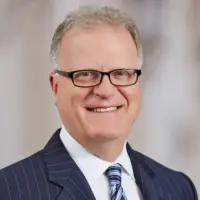
Joseph R. Impicciche, JD, MHA
CEO

Eduardo Conrado
President

Michelle H. Kohler, PhD
Executive VP & Chief Human Resources Officer, Ascension

Amber Sims, MBA
Executive VP & Chief Strategy and Growth Officer, Ascension

Tom VanOsdol, MS, MA, FACHE
Executive VP & Chief Mission Integration Officer, Ascension
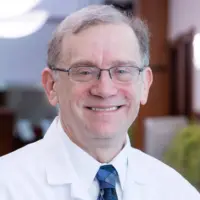
Dr.Richard Fogel, MD, FACC, FHRS
Executive VP & Chief Clinical Officer, Ascension

Saurabh Tripathi
Executive VP & CFO,Ascension

Eric S. Engler
Executive VP & Chief of Staff, Ascension
Accreditations

The Joint Commission, formerly known as JCAHO, is a nonprofit organization that accredits rehab organizations and programs. Founded in 1951, the Joint Commision's mission is to improve the quality of patient care and demonstrating the quality of patient care.
Joint Commission Accreditation: Yes
Contact Information
2301 North Lake Drive
Milwaukee, WI 53211